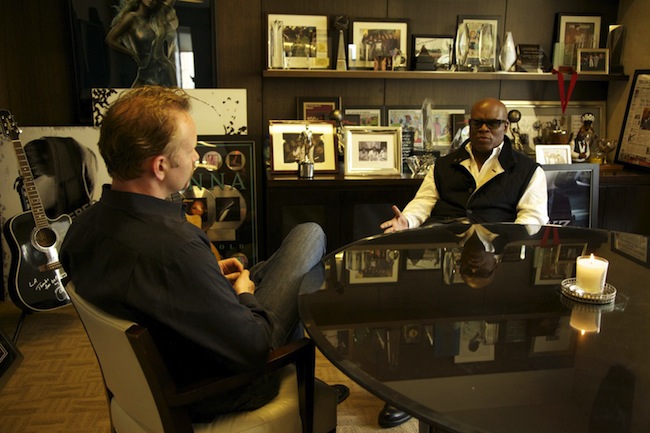|
If filmmakers were the broke teenagers of the
creative arts
industry, then advertisers would be the filthy-rich parents willing to
lend
helping hands - at a price. The Greatest
Movie Ever Sold, the latest documentary from Morgan Spurlock (Super Size Me, Where in the World is Osama
Bin Laden?), is - simply put - a film about product placements,
funded by product
placements. It mainly reviews the purpose of advertising within the
film
industry and is a worthwhile watch that no Marketing, Media or
Communications
student can afford to miss.
Technically, the film’s full title is POM Wonderful presents The Greatest Movie etc., which unashamedly shows off the
name of the doco’s major sponsor. Australian spectators who have never
heard of
POM (a US pomegranate juice brand) before will definitely remember its
name soon
afterwards. You will vividly recall the shape of the POM bottles, the
purple-black
colour of POM juice, and the fact that POM market researchers will
drink nothing
but POM - creepily enough - during their work meetings. With this film,
Spurlock certainly knows how to make professionals look stupid. Even
the great
Tarantino and the ‘real’ Dr Dre can’t escape those trickster lenses.

The main
objective of Greatest Movie is to take audiences
behind the scenes of film financing. You will see Spurlock perform many
cold
calls, business pitches, storyboarded presentations (without
PowerPoint), and
handshakes in the company of powerful yet little known people - all to
gain
funding for the very movie you are watching. Don’t let that
time-twisting
self-reflexivity confuse you. Spurlock carefully balances these
business-oriented
scenarios with insightful interviews. He quizzes laypeople,
politicians, intellectuals
and executives on such issues as the necessity of advertising within
the entertainment
industry, truth in advertising, and the definition of that offensive
term,
‘selling out.’ You’ll learn a handful of other words too that you’re
welcome to
use in conversations to make you sound smarter: ‘Brand Personality,’
‘Media Impression,’
and ‘Neuromarketing,’ just to name a few. Spurlock even undergoes brain
scans
to test the effect of ads on his nervous system. As you may know,
abusive advertisers
can ‘hypnotise’ audiences into purchasing products via visceral
impulses. Ever
felt thirsty after watching a Coke ad?

One of
the most interesting points
brought up in Greatest Movie is the stark
contrast between New York City and São Paulo. The former is saturated
with neon
and billboards. The latter, however, is relatively blank due to the
laws that
prohibit outdoor advertising. See, in this part of the world, excess
visual
marketing is seen as a form of pollution - thank goodness. ‘So, what’s
up with
North America’s obsession with ads?’ you might ask. Perhaps the
passionate
words of publicist and motivational speaker, Michael Levine, may shed
some
light on this issue: ‘You’re in America, son! Sell! Sell! Sell!’
Considering
the current turmoil of the economy, Levine’s words can only resonate
sourly.
Despite
being jokingly described as a
‘whore’ by talk-show host Jimmy Kimmel, Spurlock is self-portrayed as
triumphant by the end of the documentary. That is to say, by conducting
his Selling-Out
Experiment, Spurlock hasn’t lost his credibility as an independent
filmmaker --
whatever that word means. Overall, The
Greatest Movie Ever Sold is a clever and refreshing film that is
equally as
informative. It’s bound to be every Communications Intern’s wake-up
call and
the most applicable and entertaining lecture you never had.
|